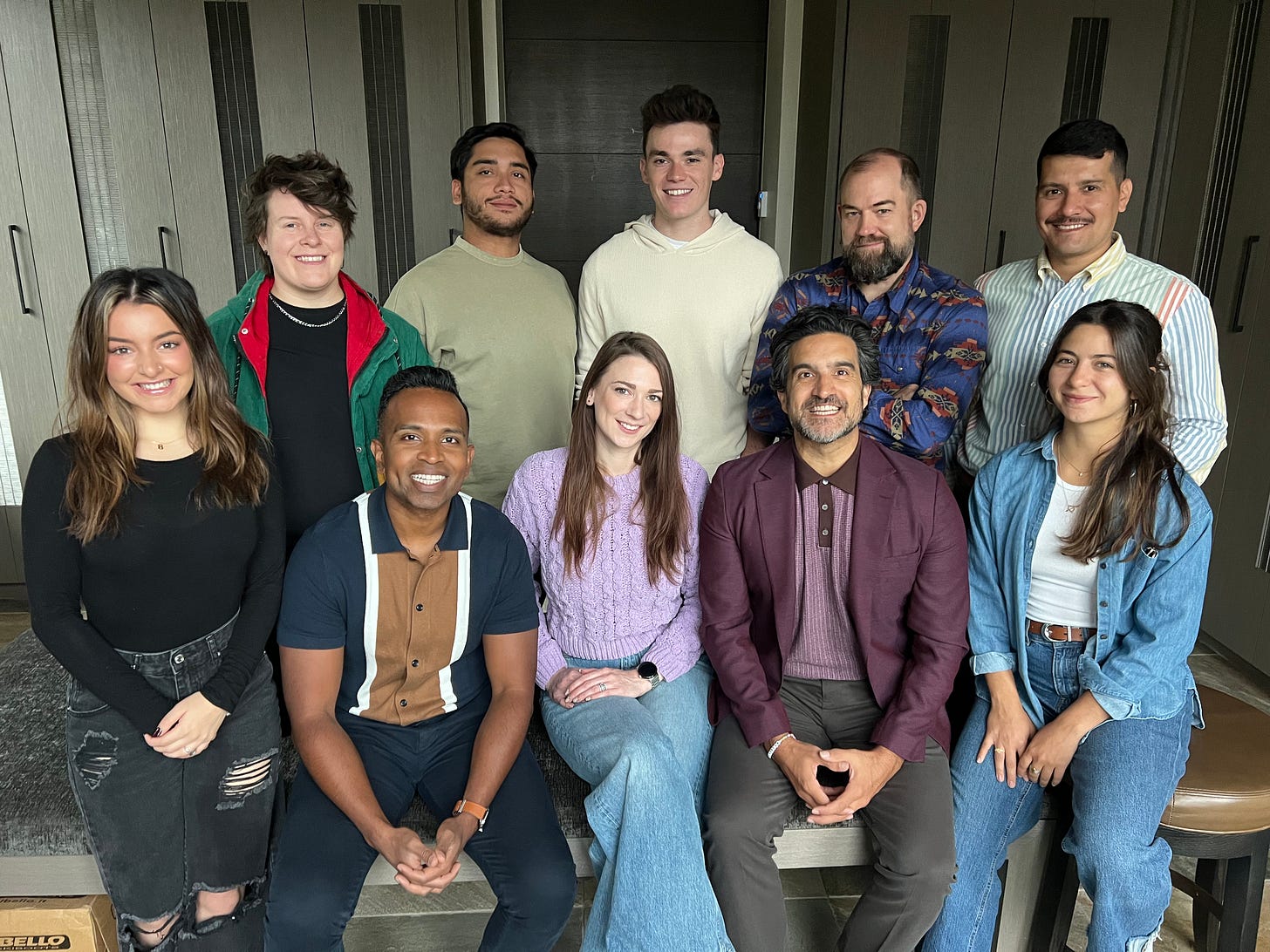When my wife and I moved with our one-year old son from New York City to Chicago mid-pandemic, I assumed the homecoming would not change much about my social life. My best friends had left New York. Still others were jumping ship. Meanwhile my family is in Chicago, as was one of my oldest friends.
We arrived. My one friend moved. The remote work era went from a fixture of life to a permanent reality of it. I lost myself in Slack chats, Zoom calls, Google docs, Uber Eats, Netflix, Instagram, Twitter, TikTok and Chess.com.
My family life was vibrant, but my professional and personal social life were nil. I replaced that vacuum with screens.
And I called that living.
It took two years for me to realize that while my family life was filled to the brim with two forms of Greek love: eros (romantic love) and storge (parent/child love), I was missing two others kinds of love: philia (platonic love) and agape (love of the tribe).
My cup was half empty.
In short, I missed having a tribe, and I missed having friends. I felt frozen in amber, caught between two worlds: my life before the pandemic, and my new permanently altered, digitally-addicted reality.
According to an alarming 2023 report from the surgeon general Dr. Vivek Murthy, we have lost 24 hours of in-person time per month over the past 20 years. Companionship has decreased 14 hours per month. Household family engagement has decreased 5 hours per month. Lacking social connection, the report says, is as dangerous as smoking 15 cigarettes a day.
Meanwhile—20 years ago—we were already kinda screwed. Robert Putnam’s book Bowling Alone, published in 2000, chronicled the decline of the American social fabric. Upward mobility moved us away from our family and friend roots. Cars and suburbanization destroyed the town square. Religious institutions declined. PTAs, labor unions, lions club, bowling leagues—they all evaporated. Starbucks became the third place.
Then smartphones, social media, and a global pandemic. Technology accelerated an already precipitous decline in the time we spend together. A physical health pandemic has given way to a mental health pandemic. Teen suicides are up 62% over the past 14 years.
What do we do?
Emerging science lights the way.
Recent research demonstrates there are two ingredients in the formation of a platonic friendship:
multiple unplanned interactions in a group setting
mutual disclosure of vulnerable information
Dr. Marisa Franco, in her book Platonic, refers to consistency and vulnerability as table stakes to platonic love.
But how do you plan for an unplanned social interactions?
Pie seeks to answer that question.
Our social app has a singular goal in mind: make it easy to make friends. Our aim is to place you into group settings where there is a high density of the kinds of people you might click with.
Our vision is for a world where doing things you enjoy with people you like should be as easy as calling an Uber.
The story of how we have pursued that vision was covered in some depth by the Wall Street Journal this morning including the formidable contributions of Twitter co-founder Ev Williams to our product and company. We are pleased to share news of a recently raised $11.5 million Series A round.
But even more exciting than our Series A is who I am with this morning: a wonderful group of nine humans who comprise the Pie team. The Pieoneers. We spend every day together in River North in Chicago. Five days a week. All day. Old school style.
We laugh. We grab lunch. We get coffee. We get on whiteboards. We riff. We give and get real feedback. We go out. We like each other. And we are really getting to know each other.
In short, we are becoming friends. Vulnerability and consistency, just like the doctor says.
We also experience the things that make building a pioneering startup more likely: Spontaneity. Socializing. Serendipity. Social collision.
I’m not frozen in amber anymore.
I’m excited to introduce you to my new friends.
We’re working hard every day to bring you some new friends, too.
Pie is live in Chicago. Before long, we will be coming to a city near you. If you live in Chicago, or have friends or family here who are at life inflection points where their social capacity exceeds their social opportunities (graduated school, new to the city, new job, friends leaving town, friends getting married, friends having kids, getting divorced, themselves having kids, empty nest), you and they can find our web and mobile app here.Our core demographic is 22 to 34, but all are welcome. If you’re outside of Chicago, maybe don’t download this yet. We’ll be with you soon. If you believe in this mission, follow us on Instagram at @pie.social. We’ll announce new market launches there as we go.





I bought Bowling Alone in 2022, when I was feeling these things. For whatever reason, Amazon sent me 2 copies. It was literally the universe saying “Yes, find another friend who is struggling with this and give it to them.”
Hey Andy, I spent a few years working on this problem with a startup I created called ComeWith. We ramped up quickly to 15K users and brought 10K people together across 60 cities in three months. I learned a lot. Please contact me if I can be helpful. https://www.linkedin.com/in/davelinhardt/.